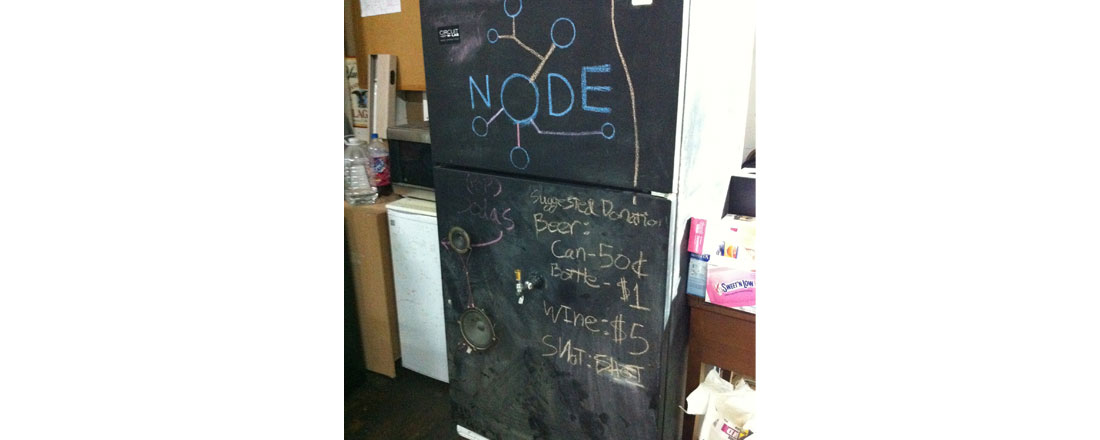Brian Hall gets on his laptop and types “ev.mesh/” in the address bar. A splash page opens. “This is the Mesh. This is not the internet.”
From this page, Hall chats with other people connected to “the Mesh.” Soon, he hopes to create a social network, where people will find local events and special deals advertised by local businesses. Maybe they’ll even be able to access Netflix, Hall said, admitting that this last wish is “just a wacky idea for the future.”
Brian Hall is a member of NYC Mesh, an organization that tries to build a decentralized network of devices, or “nodes,” which are connected between them. This network is called “the Mesh,” or meshnet, and is independent from the internet: If the internet is down, people who have access to a node can still be connected to each other. And unlike the internet, access to a mesh network is free, once you’ve bought the hardware to set up the network.
Read about other communities building mesh networks
The goal of NYC Mesh is to connect all New Yorkers, provide free internet and “be an alternative to Time Warner,” Hall said.
Eight people faced their computers in a room on 3rd Avenue in Brooklyn, during one of NYC Mesh’s recent meetings. In Spain, a meshnet group, Guifi.net, managed to create a 20,000-node network, Hall said — actually the network has close to 30,000 nodes, according to Guifi’s website. One person at the table asked how many NYC Mesh nodes exist. “About 17, I think,” Hall answered with a smile, as he looked down on the table. Four or five of these working nodes are in Brooklyn, Hall said. (Here’s a map.)
“The challenge is to scale up to a size where it becomes a reliable internet source,” Hall said.
Programmers and people with a tech background “all get the idea immediately,” Hall said. They like the idea of having a community-run network that doesn’t need the big internet providers. But it’s hard to sustain without getting more people onboard. “The average person is just looking for internet, really,” Hall said. “Non-technical people just want to watch Netflix so it’s hard to explain to them.”
Free internet might be a selling point for Hall. If one node has access to the internet, it can provide internet to the other nodes of the mesh network for free.
That echoes the project another Brooklyn-based organization is also currently developing.
Building a free internet network that bypasses the big providers was on the mind of workers at Red Hook Initiative (RHI) for a while, but “Hurricane Sandy kind of pushed the development,” said Robert Smith, the assistant administrator for RHI’s free WiFi project. During Hurricane Sandy, the internet was down, and RHI started to set up internet access points so people could get information and contact their families, Smith said.
RHI pays its internet subscription to Brooklyn Fiber, and redistributes this coverage for free to a dozen parts of Red Hook. “We still have a lot of work to do,” Smith said. There are 13 routers operating now, and Smith said he thinks they need about 40 to 50 to cover the entire neighborhood.
Back in the 3rd Avenue room, Brian Hall said he’s planning to offer similar services via NYC Mesh. As his organization installs more nodes, he hopes to connect network with others in New York City, including the one RHI has set up. Before his meshnet reaches Red Hook, though, Hall will have to convince a lot of Netflix lovers to set up a node.
Join the conversation!
Find news, events, jobs and people who share your interests on Technical.ly's open community Slack

